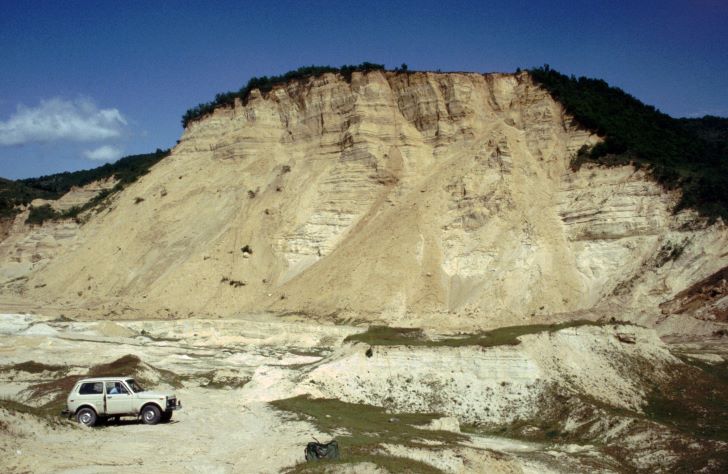Black Sea Project 2019-2021
Many aspects of the geological evolution of the Black Sea remain poorly understood. This project phase addressed some of these uncertainties through the completion of three separate studies.
The first, our final field-based report in the series, constrains the nature and extent of potential reservoir quality sandstones derived from the Dziruli Massif in west and central Georgia. It documents potential reservoir-quality Mesozoic and Cenozoic depositional systems derived from this long-lived crystalline basement high in order to reduce exploration risk in west and central Georgia, including the Georgian offshore.

The second study provided a comprehensive review of the Mesozoic and Cenozoic evolution of the Black Sea region and included 12 palinspastic reconstructions and cross sections spanning the Aptian to present day. It was conducted to test various models for the genesis of the Western and Eastern Black Sea basins and whether they opened synchronously or separately. The report has wide-reaching implications for the region, including for basin modelling and hydrocarbon prospectivity.
Lastly, the final report in this project phase presented five Eocene to Pliocene palaeogeographic maps of the Black and Caspian seas, thereby providing a visual representation of the tectonic and sedimentary evolution of the region during a period when most of siliciclastic reservoirs and the two main source rock intervals were deposited. Furthermore, digital versions of the maps contain hyperlinks to detailed petroleum system information collated from earlier CASP Black Sea Project reports. This provides a valuable additional resource and serves as an introduction to the rich datasets contained within the previous 79 reports from the Black Sea series.
Completed: October 2025.
Contact(s): Stephen Vincent
Reports Issued in This Project
- Eocene to Pliocene gross depositional maps of the greater Black Sea region CASP.BlackSea2019-21.65
- A review of the origin and geodynamic evolution of the Western and Eastern Black Sea basins CASP.BlackSea2019-21.64
- Constraining the nature and extent of potential reservoir quality sandstones derived from the Dziruli Massif, west and central Georgia CASP.BlackSea2019-21.63
Products
- Geological Carbon Storage Research
- Mudrock Seals in CO2 Storage Systems Thematic Research
- Bunter Sandstone Storage Complex Thematic Research
- A palynozonation of the Bunter Sandstone CO2 storage complex: onshore analogue study (CASP.BSSC.1)
- Palynostratigraphy of the Bunter Sandstone CO2 storage complex in the Southern North Sea (CASP.BSSC.2)
- Cyclostratigraphy of the Early to Middle Triassic of the Southern North Sea (CASP.BSSC.3)
- Reservoir composition and diagenesis (CASP.BSSC.4)
- Controls on Bunter Sandstone composition (CASP.BSSC.5)
- Middle Triassic seals – onshore analogue study (CASP.BSSC.6)
- Middle Triassic seals – UK and Dutch offshore wells study (CASP.BSSC.7)
- Reactions and Flow of CO2 Fluid in Compositionally Immature Sandstones Thematic Research
- The Impact of Volcaniclastic Rocks on CO2 Storage Thematic Research
- Regional Research
- Reports
- Project History
- Data Packages
- Geological Collections and Data
